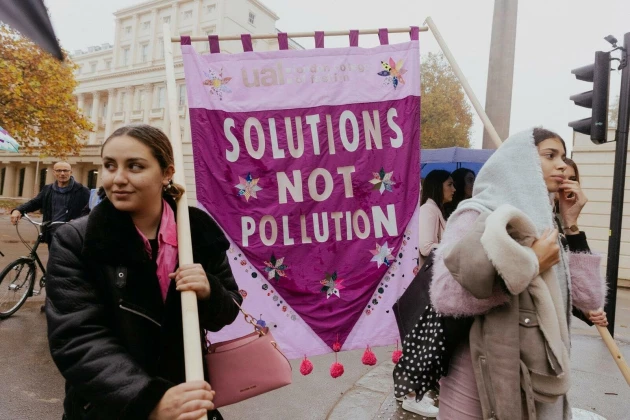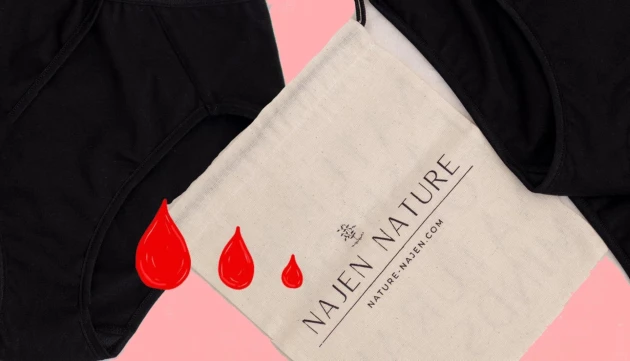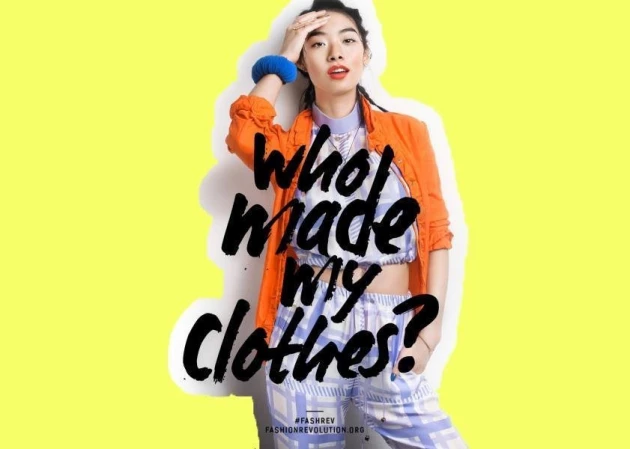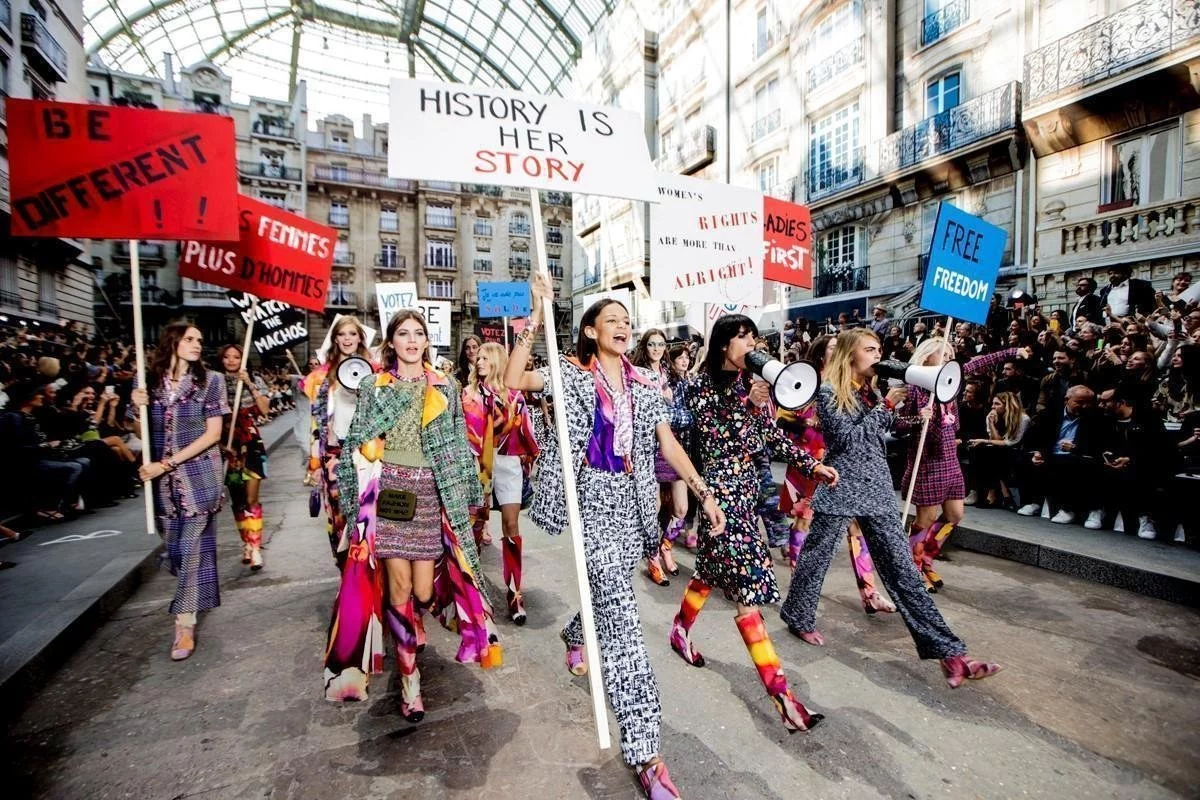
We celebrate the difference
Why do our society blame sexual aggression victims and the way they chose to dress
3 min read — Oct 10, 2020
How often have you heard an acquaintance or someone you don’t know say something like:
"Well, it’s sort of her own fault, it was probably because of the way she was dressed."
"What were you wearing?"
"She’s asking for it."
"They wear something provocative and then wonder why they got assaulted."
These are questions and remarks that were given to victims of assault and are still repeated because, in the collective unconsciousness of a large number of people, men as women, if a person is sexually abused it is that there would be a justification for the behavior of the aggressor… An excuse for incredible violence contributes to Relieving the aggressor's responsibility.
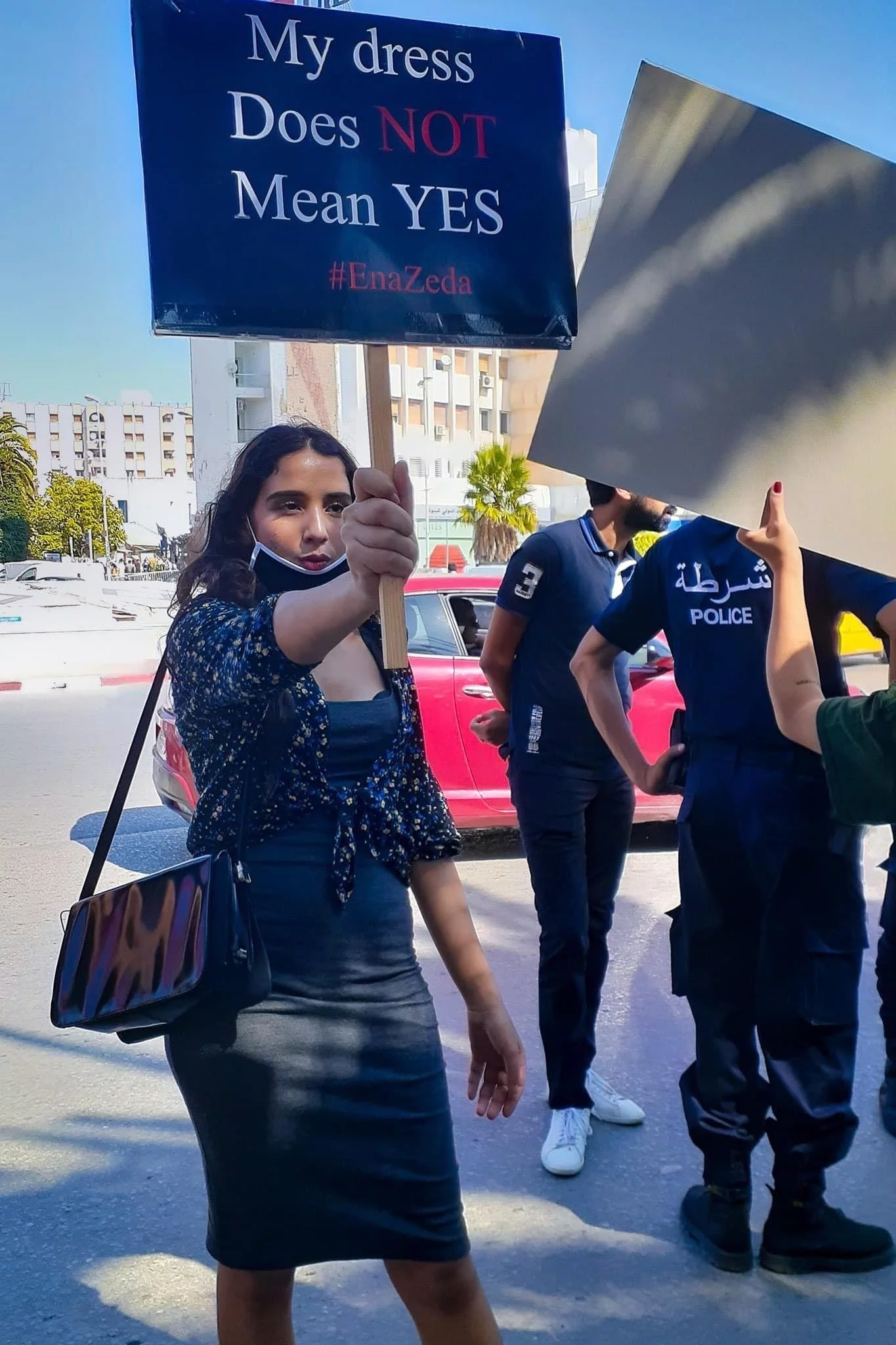 Credits: Rachida El Rhdioui
Credits: Rachida El Rhdioui But why do many Tunisians believe so? Where does this whole phenomenon come from?
We asked a few Tunisians to give us some insight and answer this question from their perspective:
Imene, 21 years old
“It touches a weak spot in them. People often hate or show hate or even take dangerous actions because someone is revealing some truth in them that they don't want to see. I'm sure half of the country has a dirty secret or maybe a hidden personality they don’t want to acknowledge, they’re in denial. In fact, they probably see the abuser’s acts as normal and would probably do the same if they were at his place, and thus, they hate it when they call them out.
Sana, 23 years old
“Education is an important influencing factor. It certainly goes beyond that but I still believe that it’s important. We often tell girls how to dress but rarely teach boys what a respectful sexual relationship is and what consent is. We also often tell girls they shouldn’t dress a certain way – short skirts, low cut tops – because if something terrible happened to them, if they got sexually assaulted, for example, people might say they invited it or were dressed to seduce.”
Wael, 25 Years old
“People who often think that way have a psychological problem usually related to anything sexual. They don’t accept that the world is evolving and that women, in general, feel more comfortable wearing clothes they like not for the purpose of seduction but because they feel comfortable and are starting to care less about social prejudices. We can also blame it on religion and culture since some people believe that a woman's body is sacred and should not be shown.”
Sexual abuse and blaming it on what the victim wears is nothing new for Fashion icons in Tunisia. Anyone who has a social media account probably saw some body-shaming posts or awful comments believing they have the right to judge someone's clothing and degrading them for that reason. Some of them decided to speak up about it while others remained silent. One of them is the Tunisian actress and Model Rim El Benna who posted on her Instagram a picture that she took for the Warri Campaign in 2016 with a powerful caption.
She is using her platform to talk about her experience with sexual aggression and hate messages as well as fight for causes she strongly believes in.
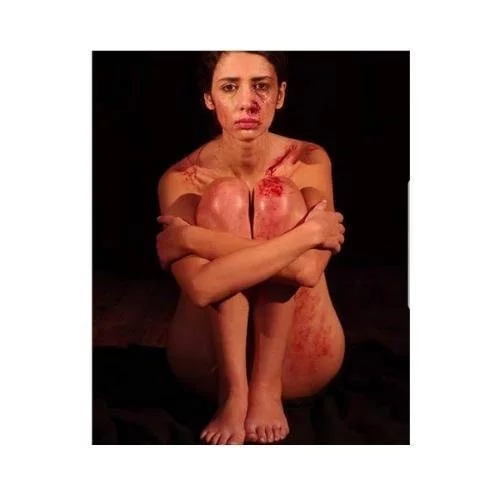
"كيف تدخل تسب مرا وانتي مرا كيفها خاطر لبستها ولا طريقة حياتها ماعجبتكش واستفزت العقد النفسية متاعك على خاطر اللي تحلم بيه ماتنجمش تحققو! ولا على خاطر انتي يمارسو عليك في القمع تخرج تسيب في السموم متاعك على غيرك. مافمة حتى شي يبرر الاغتصاب لغة كان جات محتشمة راهو ما اغتصبها حد مرفوضة و ماتنجم تهز كان لي الكوارث اللي قاعد تصير كل يوم"
In order to raise awareness about cyber violence, hate, sexual abuse towards women, the movement Ena Zeda (aka Me Too) organized an event with the French Institute of Tunis in collaboration with the Association "Aswat Nissa", where they organized an animated debate with Documentary screening and an exposition with figures and alarming texts that to could say the least as well as they painted a graffiti wall in collaboration with the Tunisian collective “without a name” بلاش إسم in one of the biggest streets of Tunis (Paris Street in downtown Tunis). To say the least, the event raised a lot of questions and social taboos that women are facing now and shed light on sexual violence and aggression.
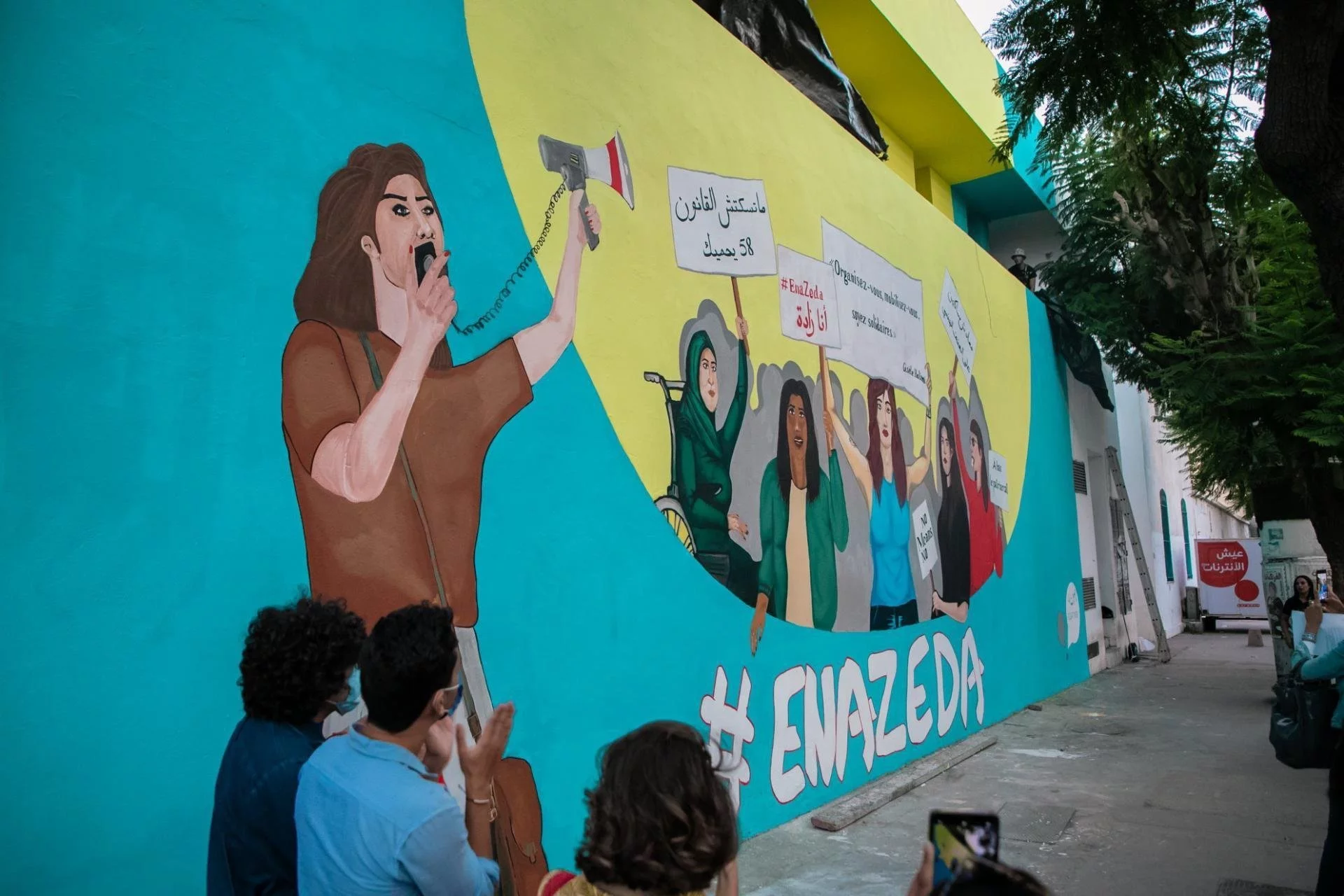
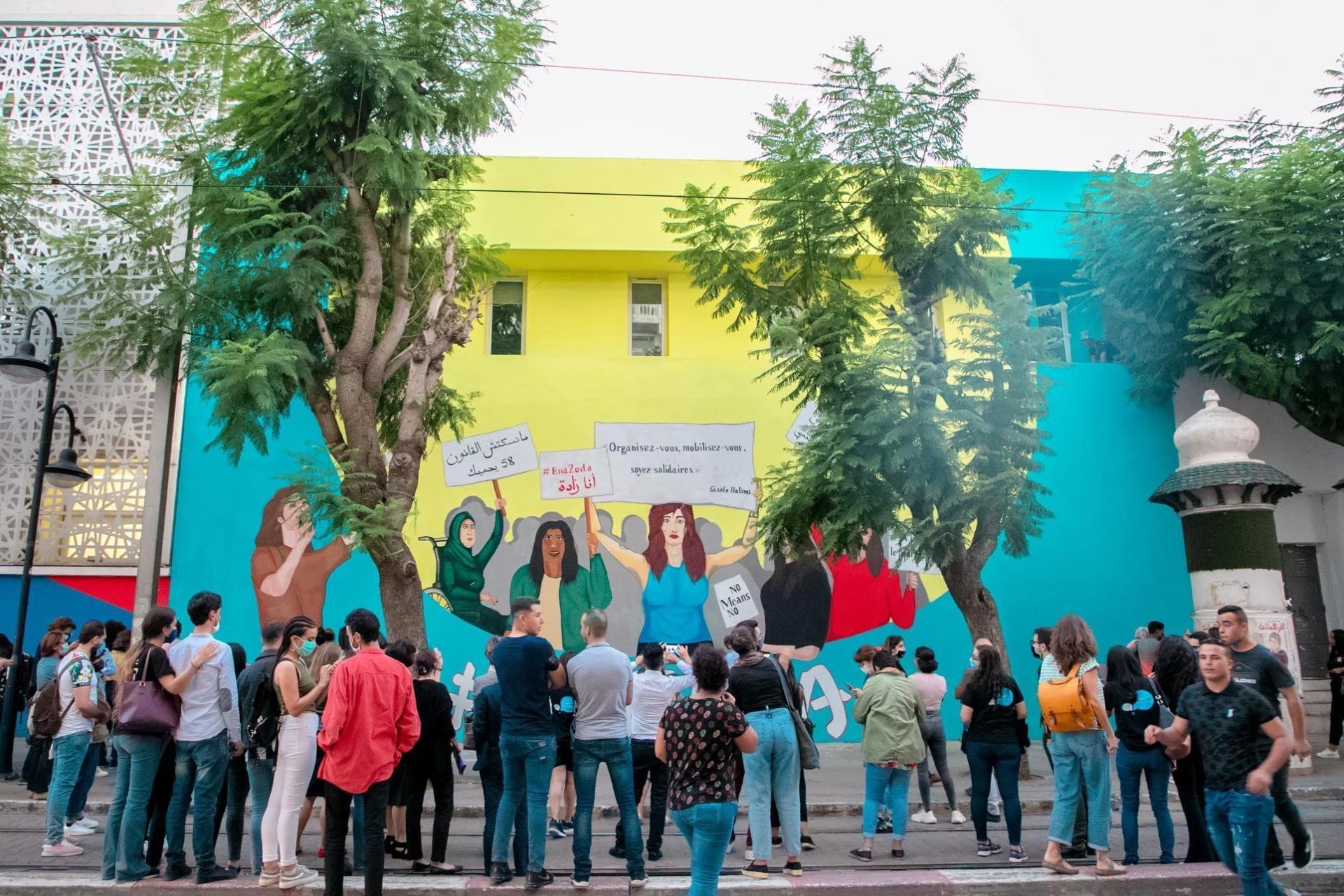
The question itself raises a lot of controversial issues that might or might not help understand the whole phenomena of the link between sexual assault and clothing. But this isn’t just a Tunisian issue, globally we always go back to the question “what were you wearing ?” when a sexual assault happens. Statements like this cause additional psychological problems for victims, who are afraid to talk about what happened or seek professional help, considering themselves to be at fault. But when you accuse the victim of an incident, you are taking the side of the rapist/aggressor.
